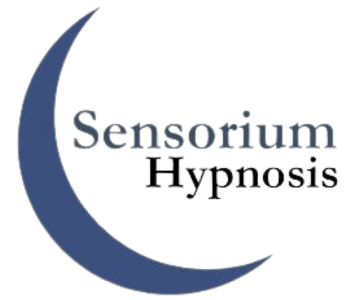It’s not easy navigating the world of work with unhealed childhood trauma. The trauma-self can keep us in the same kind of limiting work conditions and experiences for decades, even as we change jobs, simply because we are tethered to the past. Recognizing patterns and themes throughout careers can shine a light on some inner work that needs attention.
Finding your voice, trusting your instincts, and being able to decipher your own negative inner dialogue and legitimate outer world injustices can feel heavy. Yet, learning how to express the authentic- self, amidst these inner and outer world storms, is a vital part of inner child healing. Moreover, the extra investment in self can help circumnavigate a lifetime of unsatisfying or unfulfilling work experiences.
Here are some common work triggers that stem from unhealed childhood trauma:
- Tendency to dismiss or ignore first impressions and instincts during an interview or new work setting.
When I ask clients who are unsatisfied with their career how they felt about the interview process or the first few months of work, I typically get an earful. “They never asked me about important things like work style, preferences, goals or career outlook.” “Some of my questions made them visibly uncomfortable. It’s like they skirted around some delicate internal issues.” “The front office staff was unengaging and rather rude.” “No one looked me in the eye.” “There was no warmth or connection.” My question to clients is this: “Would you go on a second date with someone who behaved in this fashion?” My clients typically laugh and say, “of course not….” or “hell, no!” Fascinating, right?
Even with a history of childhood trauma, instincts and first impressions are a reliable source of information and critical when it comes to big decisions. In fact, one could argue that people with a history of trauma have stronger instincts as a survival mechanism from growing up in chaotic or unsafe environments. When it comes to job hunting, your instincts may be telling you to cast a wider net for work options that are a better match.
- Transparent and honest communication with “authority figures” creates anxiety.
Many people with trauma or a history of PTSD will approach work from the standpoint of the 8-year-old child who was consistently dismissed, verbally admonished or discouraged from expressing feelings, needs, opinions, etc. Children with narcissistic or mentally abusive parents are accustomed to “walking on eggshells” to avoid explosive anger or being emotionally manipulated into feeling guilty or burdensome, etc. Thus, in work settings, they will often forgo opportunities to negotiate for the things needed to perform a job more effectively or confidently. Part of their healing journey will include learning to use their voice as a tool for manifesting positive outcomes.
- Staying too long in an unsatisfying role or position.
Because feeling uncomfortable, uncelebrated or even overwhelmed are familiar feelings, people with unhealed trauma will often stay in a job to the point of making themselves sick emotionally and/or physically. “Old programming” will convince them they are weak, unadaptable, unreasonable or unqualified to make responsible and grounded choices on their own behalf. Over time, quietly conceding to such unsavory conditions sends negative messages to the subconscious mind that this is “as good as it gets” and reinforces a victim mindset. Healing the trauma-self includes learning to embrace options and choices and taking responsibility for choosing to do nothing.
- Failure to Establish Clear Boundaries
Creating emotionally codependent relationships with employers, coworkers and/or clients is a direct reflection of old familial patterns. Childhood trauma can create a propensity in adults to self-sacrificially accommodate others at the expense of their own emotional, mental, and/or physical wellbeing. This chronic “people pleasing” behavior is an attempt to secure others’ loyalty and admiration by making oneself indispensable. Resolving fears of becoming obsolete and learning to love oneself unconditionally sets the stage for more self-empowering practices. Placing less energy on non-reciprocal relationships may be helpful in protecting inner child from being triggered.
- Obsessive worry over losing job
It’s not uncommon for people with a history of trauma to subconsciously manifest stressful jobs. To add insult to injury, they are insecure about their ability to transition to a new job, or a better job should this be necessary or desired. They also worry they won’t find another position that matches their salary, benefits, stock options, etc. and thus don’t bother exploring. Negative inner dialogue and catastrophizing creates “fight or flight” response patterns which interferes with creativity, focus, and motivation. Some of the collateral damage of obsessive worry also includes working self-sacrificially to prove one’s worth or overlooking opportunities that could manifest better outcomes and more mental peace. Learning metaphysical meditation and self-hypnosis can be an extraordinary means of deactivating the primitive mind that keeps you in “fight or flight” while activating the Intuitive mind that is both wise and emotionally grounded.
- Assign too much power to one person, one job, one situation that could “end everything.”
This “all or nothing” approach rarely reflects reality. There are always options, opportunities, choices; however, it takes work. It’s human nature to resist change and to take the path of least resistance, even if that path is unhealthy, unenlightened and less than inspiring. It is also common for those with unhealed trauma to look through the lens of scarcity just waiting for opportunities to dry up. They seldom realize how much their own mindset influences outcomes and erodes opportunities. Sadly, some people are addicted to being miserable. This can be learned behavior from a parent or guardian or a reflection of how one feels about him/herself as a victim of circumstance and injustice. Healing the trauma-self with include exploring self-limiting beliefs and self-sabotaging behaviors and replacing them with the wisdom of the Higher mind.
What small shifts and changes can you make to disentangle from work triggers?
- Honor your instincts in reading energies, attitudes, dispositions and other non-verbal cues as the source of invaluable data regarding your own wellbeing.
- Find your voice. Ask questions that are important to you in making informed choices on your own behalf, especially during an interview or a probationary period. Once you have accepted a position, if there is something happening in your job that feels unsettling, find the appropriate “change agent” internally who has the time, resources, and interest in helping you. Lead with the solution, which means put some thought into how your grievances can be addressed using the “formula of the greater good.”
- Consider the fact that your work environment may be unsuitable or incompatible based on your emotional, social, or intellectual needs or goals and desires. This does not reflect failure on your part. It’s simply an inharmonious match. If going to work causes more stress than joy and satisfaction, celebrate the wisdom in discovering this and prepare to move on. Put some thought into the types of corporate missions, values, ideals and people with whom you’d like to work.
- Commit to finding a healthy work/life balance. Too often people don’t know who they are outside their work persona. When they “leave” work physically, work stress follows them into their personal lives snuffing out any motivation for self-care or self-expression. We are multidimensional beings with many gifts, talents and interests that need to be expressed to promote optimal health and fulfillment.
- If you notice recurrent negative patterns or themes in your work history, find a healing practitioner to help you identify, process and release past trauma. Ideally, this experience will help connect you to the most authentic version of yourself personally and professionally.
Amy is a master hypnotist, metaphysical healer & medium who blends modalities for the quintessential transformative self-healing experience. You can book a free zoom consultation online at https://bookamy.timetap.com/. Her sanctuary for in-person sessions is located in Lake Stevens, WA (just North of Seattle). She also provides services across the globe via Zoom.
Visit the Self-Therapy Shop filled with spiritual learning modules on various topics related to childhood & life trauma, unhealthy relationship patterns and more. Click here to explore: Discover Self Therapy Shop for Healing | Sensorium Hypnosis & Mediumship

